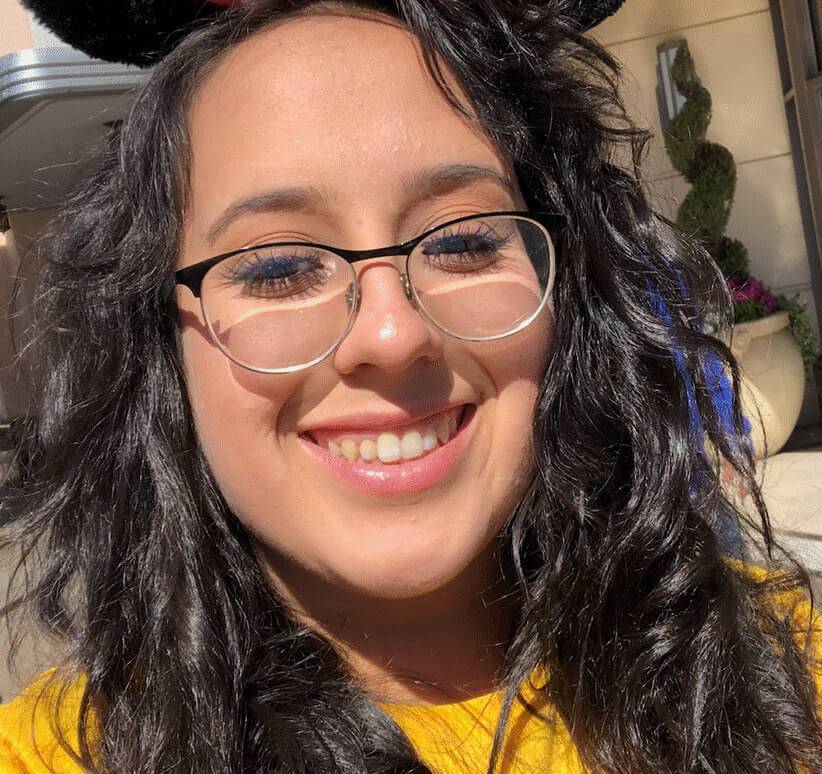Education and Child Development
Apply NowProgram Spotlight
The EDU CD academic program prepares students for careers in education. We offer courses in early childhood education/child development, ECE curriculum design, family support, special education and ECE/CD administration.
Students can pursue an Certificate of Achievement, Associates's Degree and Associate's Degree for Transfer. Graduates can work as preschool teachers, child care center directors, special education teachers, family support specialists or family child care providers.
Find out more about course offerings, workforce and career information, college and community events as well as scholarship opportunities.
Testimonial
 The Education/Child Development program has helped me figure out everything I needed
to accomplish my goals. All of the staff were helpful & truly want to see me grow.
I was able to get my education while getting real experience with children. The program
has helped me grow into the teacher I am today."Michelle
The Education/Child Development program has helped me figure out everything I needed
to accomplish my goals. All of the staff were helpful & truly want to see me grow.
I was able to get my education while getting real experience with children. The program
has helped me grow into the teacher I am today."Michelle
Skyline College offers several degrees and certificates for aspiring educators as well as additional courses required for the Child Development permits for the Master Teacher, Site Supervisor, and Program Director.
Degrees & Certificates
| Program | Type | Total Units |
|---|---|---|
| Early Childhood Education | AS | 60 Units |
| Early Childhood Education for Transfer | AS-T | 60 Units |
| Early Childhood Education | CA | 24 Units |
| Early Childhood Special Education | CA | 24 Units |
Master Teacher Courses & Specializations
Under the guidelines established by the Child Development Permit for the Master Teacher, Skyline College’s Education and Child Development Program has two "specializations." Six semester units in specific areas define a specialization. These focus areas can be useful for work advancement or career development.
| Infant/Toddler Care Specialization | Units |
|---|---|
| ECE. 223 Infant and Toddler Development | 3 units |
| ECE. 225 Care and Education for Infants and Toddlers | 3 units |
| Developmentally Appropriate Curriculum: Children with Special Needs Specialization | Units |
|---|---|
| ECE. 260 Children with Special Needs | 3 units |
| ECE. 263 Curriculum and Strategies for Children with Special Needs | 3 units |
Site Supervisor & Program Director Courses
Administration courses needed to apply for Site Supervisor or Program director permit that allows holders to supervise a child care and development program in a single site or multiple sites;provides service in the care, development and instruction of children in a childcare and development program; and serve as coordinator of curriculum and staff development.
| Courses for Site Supervisor and Program Director Permits | Units |
|---|---|
| ECE. 240 Administration I: Business/Legal | 3 units |
| ECE. 241 Administration II: Personnel and Leadership | 3 units |
| ECE. 242 Adult Supervision and Mentoring | 2 units |
Check out the Early Childhood Education classes offered in upcoming semesters.
The Early Childhood Apprenticeship Program (ECAP) Learning Community is a tuition-free, accelerated academic and registered apprenticeship program designed to engage and support your career in Education.
The ECAP provides you with:
- an Associate Degree for Transfer in Early Childhood Education,
- paid on-the-job training, and
- eligibility for Child Development Permits.
The Skyline College Child Development Laboratory Center (CDLC) is a laboratory program that provides a comprehensive child care and early education program for students, staff, and faculty of the San Mateo County Community College District and community members. The CDLC serves three interrelated purposes:
- Provide quality child care and developmentally appropriate learning experiences for children that support school readiness,
- Promote access to higher education by providing a service to student-families so that they can pursue their educational and vocational goals,
- Provide opportunities for Early Childhood Education students to study children in a naturalistic setting to further their learning and knowledge of child development and working with young children.
The EPICenter (Educator Preparation Institute) provides support encouragement and assistance to students with education-based majors.
Location: Building 8, Room 8-317
The EPICenter is a flexible learning environment providing academic support with an education library, computers, and student assistants. This is a quiet space offering study, collaboration, and child-based materials for students to utilize. Here, you can work on school projects, meet other students with similar majors, and participate in teacher prep activities.
The EPICenter also sponsors several teacher preparation and education-related conferences and workshop throughout the academic year.
The Advisory Committee is made up of volunteers who agree to serve as advisors to one or more career and technical programs. Members include representatives from business, labor, community agencies, faculty, students and other members.
The committee provides valuable input in areas such as curriculum development, student recruitment and placement, staff development, equipment and software, making recommendations to strengthen, expand, and improve the quality of the program.
Advisory CommitteeUpon completion of the program students will be able to:
- Analyze major developmental milestones and various theoretical frameworks that relate to early care and education to demonstrate an understanding of the importance of the early years as well as the many influences on development
- Identify best teaching and care practices and the components of early childhood settings, curriculum, and teaching strategies to increase child growth and competence.
- Assess the interrelationship of child, family, and community and how educational, political, socioeconomic factors directly impact the lives of children and families.
Location: Building 8-8317B or Building 14
Email: amaralm@smccd.edu
Phone: (650) 738-4304
The college course catalog contains lists of all courses that we may offer in the current academic year.
Our Programs and Resources
External Resources
Primary Contacts
Department Faculty & Staff
